- Making the Most of Your Smart Home: Common Use Cases - March 28, 2023
- Eco Mode at Night: Maximizing Nest’s Energy Savings - March 20, 2023
- Connecting & Controlling Smart Home Devices: A Guide - March 18, 2023
Disclosure: Links marked with * are Affiliate Links. As an Amazon Associate, I earn from qualifying purchases if you decide to make a purchase through these links – at no cost for you!
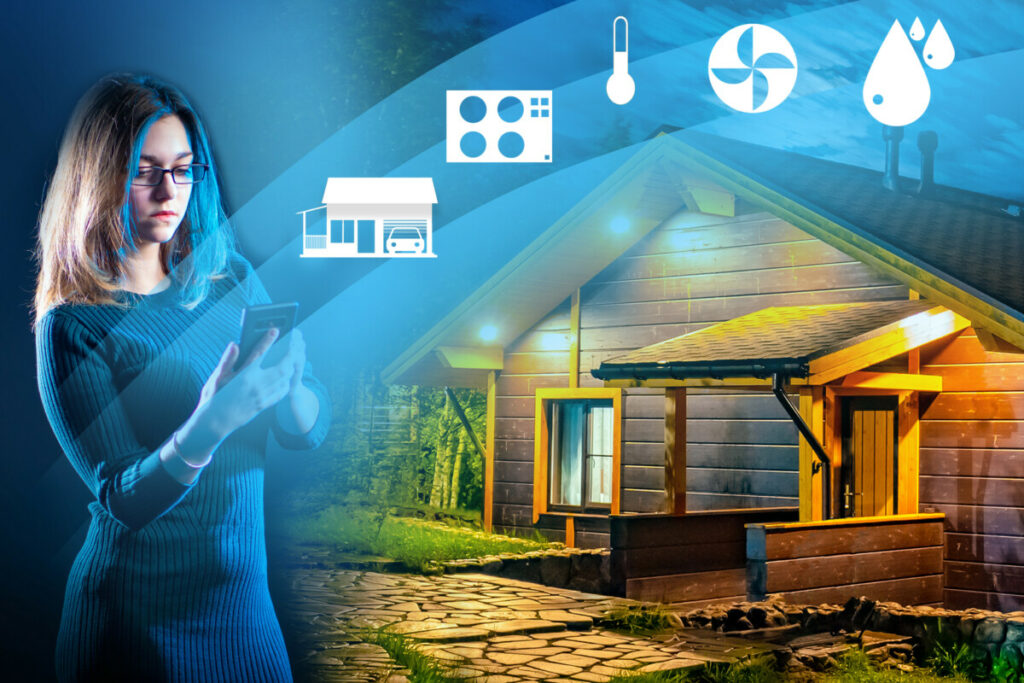
Smart homes are becoming a new trend in the United States. The appliances that make a home smart are great for making your home more accessible and improving time management. However, exactly why do you need a smart home?
Everyone should have a smart home because it is energy efficient. Smart home technology helps people save money on their energy usage by having timers on electronic devices. Smart homes also allow their users to turn on and adjust lights using their phones, which can increase comfort levels.
As you can see, there are lots of reasons to have a smart home. Continue reading to learn how a smart home can benefit you and your family.
Table of Contents
Remote Control
One of the biggest advantages of having a smart home is the ability to control your devices and appliances from anywhere at any time using a smartphone, tablet, or voice-activated device. Whether you want to adjust your thermostat while away from home, turn on a light before entering a dark room, or check on your security cameras, you can do it all from your mobile device.
This allows you to have complete control over your home even when you are away from it, giving you peace of mind and added security. With smart home systems, you can manage your home from anywhere at any time. This can be useful if you’re away from home for an extended period of time or if you have a vacation rental property that you need to manage remotely.
Energy Efficiency
Smart homes are designed to be energy efficient. With features such as smart thermostats and smart lighting, you can reduce your energy usage and lower your monthly energy bills. Smart home technology helps you save energy and money by automatically adjusting your lights, thermostat, and appliances based on your schedule and habits.
For example, you can set your thermostat to automatically turn down when you’re away from home, and then turn back up when you’re on your way back. This will help to reduce your energy consumption, which will result in lower energy bills and a more environmentally-friendly home.
Smart Light Bulbs
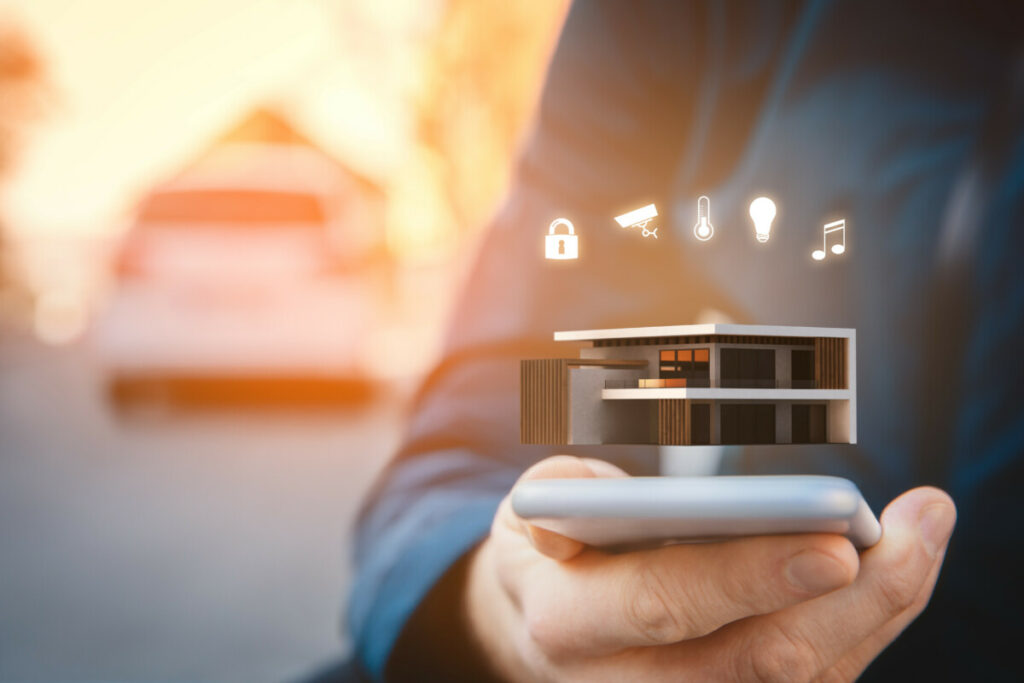
With smart lighting systems, you can control the lights in your home from anywhere at any time. You can turn lights on and off, adjust brightness levels, and even set schedules for when your lights should be on or off.
Smart light bulbs can be set to turn off when you leave a room, and smart plugs can be used to control devices that use standby power. This will help you to conserve energy by ensuring that appliances and devices that are not being used are turned off, rather than wasting energy by being left on standby.
Also, with smart lighting systems, you can control the lights in your home from anywhere at any time, which is extremely convenient. It doesn’t have to be about energy efficiency, but mobility and accessibility.
Home Security
A smart home can provide an added layer of security by allowing you to monitor your home from anywhere at any time. You can set up smart door locks that can be unlocked with a mobile app. You can also receive notifications on your mobile device if any suspicious activity is detected, allowing you to take action immediately. Some smart homes even have facial recognition technology that can identify intruders, ensuring that only those who are authorized to enter your home are able to do so.
This added security can give you peace of mind, especially when you are away from home for extended periods of time. Smart home systems and their features allow you to monitor your home from anywhere at any time. This can be useful for keeping an eye on your home while you’re away or for checking in on elderly relatives who live alone.
Comfort
Smart home technology can help you create a more comfortable living environment by allowing you to control the temperature, lighting, and other aspects of your home from your smartphone or tablet. You can also use smart speakers and voice assistants to control your devices and appliances with your voice, making it easier to perform tasks like turning off the lights or setting the temperature. This allows you to create a home environment that is tailored to your needs and preferences, providing greater comfort and convenience.
Convenience
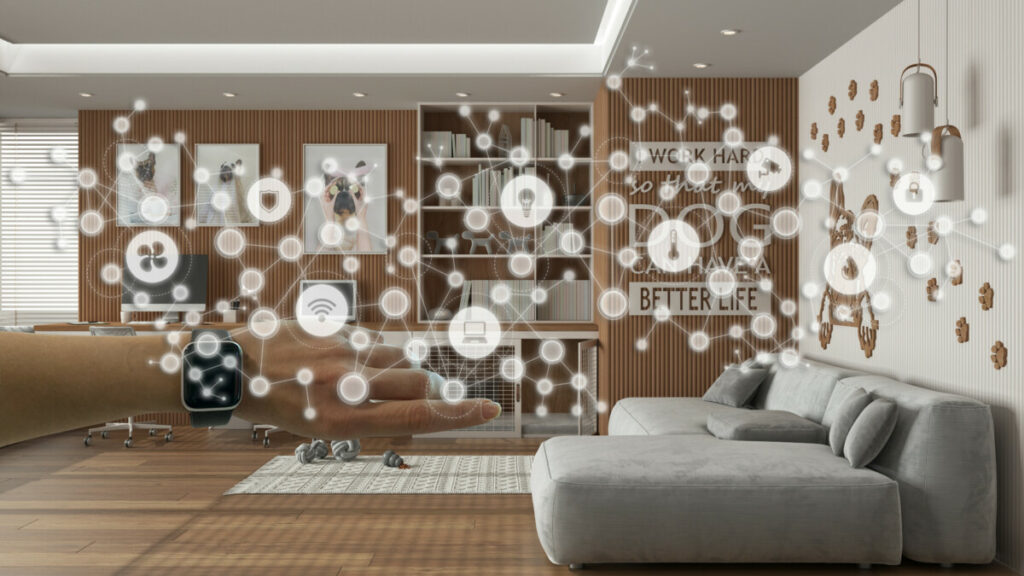
Smart home technology can make your life easier and more convenient by automating tasks that you would otherwise have to do manually. For example, you can set up smart appliances to start cooking your dinner as soon as you walk in the door, or have your coffee maker start brewing your coffee before you even get out of bed. This can help you to save time and make your daily routines more efficient, allowing you to focus on the things that matter most.
Smart homes are designed to make your life more convenient. You can control various aspects of your home from your smartphone without having to physically be there. Other examples of benefits are that you can turn your lights on or off, adjust the temperature, or unlock your doors, all from the palm of your hand. There are so many different ways smart home technology can help you.
Entertainment
A smart home can also enhance your entertainment experience by allowing you to control your television, sound system, and other entertainment devices from your smartphone or tablet. You can use voice commands to pause, rewind, or skip a movie, or use a mobile app to select the perfect soundtrack for your dinner party.
You can also use smart home devices to control your home theater system, adjust the volume, or change songs. This makes it easier and more convenient to enjoy your entertainment system and provides greater control over the audio and visual elements of your home. Smart homes can really improve your entertainment experience.
Health and Wellness
Smart homes can also contribute to your overall health and wellness. For example, smart lighting can be used to improve your sleep by gradually dimming the lights in the evening so it simulates a natural sunset and helps your body to produce melatonin, the hormone that regulates sleep. You can also set up smart alarms that use light and sound to gently wake you up in the morning, rather than a harsh and jarring alarm clock.
Smart homes can also help you to lead a more active lifestyle. For example, you can use fitness trackers to monitor your activity levels and set up reminders to encourage you to move more throughout the day. Some smart homes even have built-in workout equipment, such as treadmills and stationary bikes, so you can exercise from the comfort of your own home.
Cooking and Food Management
Smart homes can also make cooking and food management easier and more convenient. For example, you can use smart kitchen appliances to monitor the temperature and cooking time of your food, and receive alerts on your mobile device when it’s time to turn it over or take it out of the oven. You can also use smart food scales to measure the ingredients for your recipes, helping you to cook with greater accuracy and consistency.
Smart refrigerators can keep track of the food that you have in your fridge and send you reminders when you are running low on a certain ingredient. This can help you to avoid food waste and save money by reducing the amount of food that you throw away. It will also ensure that you will never run out of your favorite foods that are in the fridge.
Smart home systems can make cooking easier and more convenient. For example, you can use smart ovens to preheat and cook your food, or use smart slow cookers to prepare meals while you are away.
Home Automation

One of the key benefits of a smart home is home automation. This refers to the ability to automate tasks and processes in your home, making your life easier and more convenient. For example, you can set up smart lights to turn on automatically when you enter a room and turn off when you leave. You can also use smart plugs to control devices that use standby power, such as televisions and gaming consoles. This can save you time and make your life more convenient.
Home automation can also help you to save energy and money. For example, you can use smart thermostats to automatically adjust your heating and cooling system based on your schedule and habits, helping to reduce your energy consumption and lower your energy bills.
Voice Control
Many smart homes use voice control to make it easier to interact with your devices and appliances. This is particularly useful for people with mobility issues who may find it difficult to use a smartphone or tablet to control their home. You can use voice commands to turn on the lights, adjust the temperature, or play your favorite music, making it easier to perform tasks around your home.
Many smart home devices can be controlled by voice command systems. Some of these virtual assistants are Amazon Alexa or Google Assistant. This makes it even easier to control your home without having to physically touch a device.
Customization
A smart home allows you to customize your living environment to suit your needs and preferences. For example, you can use smart lighting to create different moods and ambiances in your home or use smart speakers to play your favorite music and podcasts. This makes it easy for you to enjoy your home while you are in it.
Integration
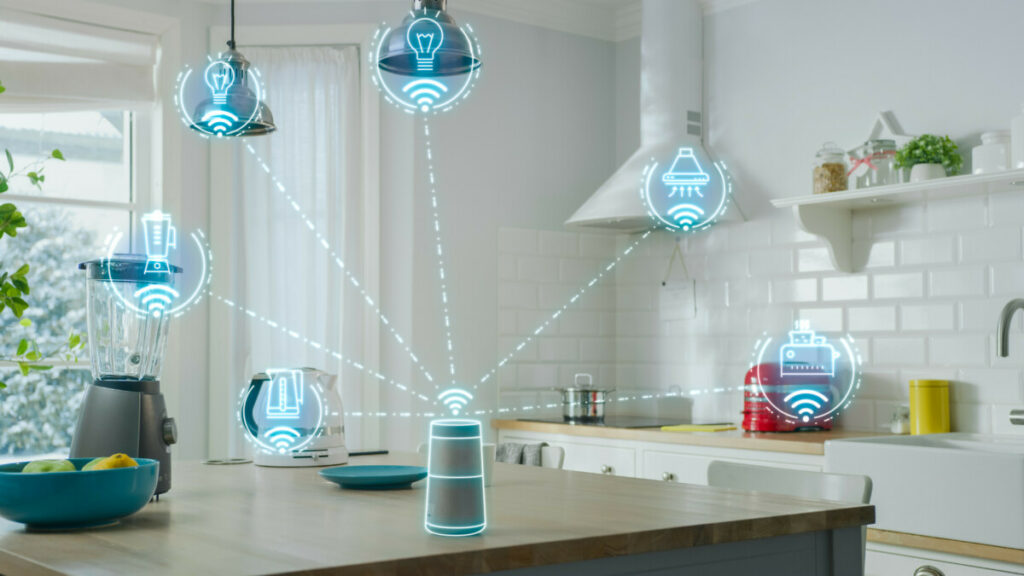
One of the key benefits of a smart home is the ability to integrate multiple devices and appliances into a single, seamless system. This means that you can control all of your devices and appliances from a single app or voice assistant, making it easier to manage your home and perform various tasks. Integration can also help you to save time and effort, as you can perform multiple tasks with a single command.
Climate Control
Smart thermostats allow you to control the temperature in your home from anywhere at any time. You can turn your heating and cooling systems on and off, set schedules, and even create custom temperature zones within your home, all from your smartphone. This enables everyone in the house to be able to enjoy the temperature in the home no matter what their specific preferences are.
Improved Safety
Smart homes can improve the safety of your home in several ways. For example, you can receive alerts if there is any suspicious activity or if a fire or carbon monoxide alarm is triggered. You can also use smart locks to control who has access to your home and monitor your home using cameras and motion sensors.
Improved Air Quality
Some smart home devices are designed to improve the air quality in your home. For example, smart air purifiers can monitor the air quality in your home and adjust accordingly, removing pollutants and allergens to create a cleaner and healthier environment.
Water Management
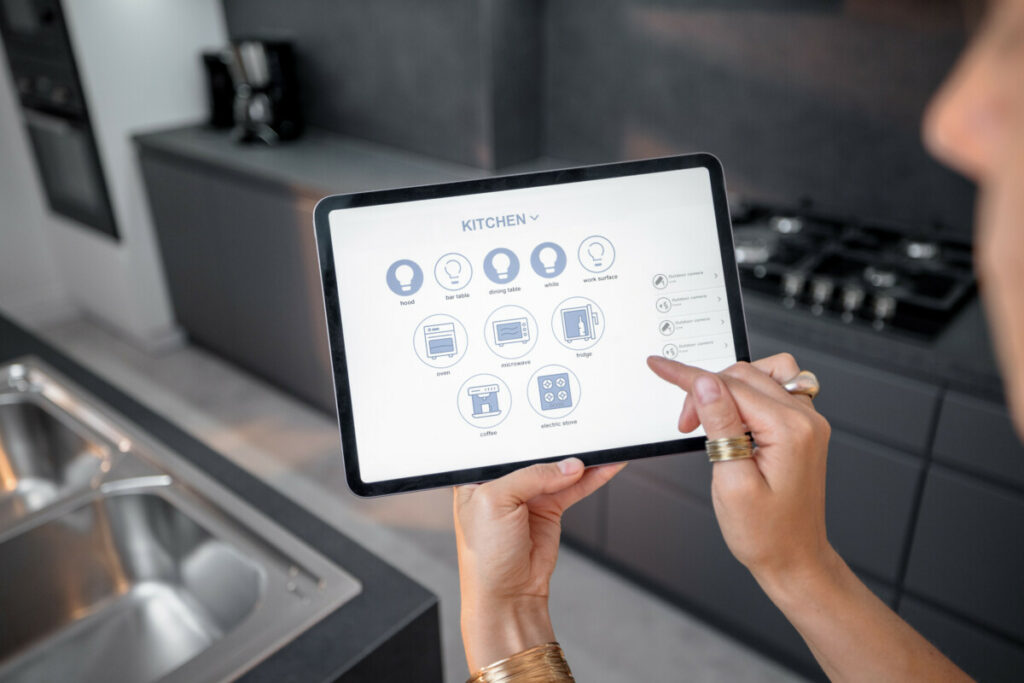
With smart home systems, you can monitor and control your water usage, helping to conserve resources and reduce the cost of your water bill. Smart water systems can detect leaks, monitor water pressure, and control the flow of water in your home.
Improved Indoor Agriculture
With smart home systems, you can create the ideal growing conditions for indoor agriculture, such as indoor gardens or hydroponic systems. You can control the temperature, light, and humidity levels in your growing space, and monitor your plants remotely.
Smart Laundry
With smart home systems, you can control your washing machine and dryer from anywhere at any time. You can start or pause a cycle, receive notifications when a cycle is finished, and even monitor the progress of your laundry. This is extremely helpful for families with multiple children who wear a lot of clothing, as it helps parents keep up with laundry.
Attention: When installing electronic equipment, please be sure to observe the manufacturer’s safety instructions. You have to take care of your own safety. The information on this site only helps you to learn.
Disclosure: This website is the property of Martin Lütkemeyer and is operated by Martin Lütkemeyer. Martin Lütkemeyer is a member of the Amazon Services LLC Affiliate Program, an affiliate advertising program designed to enable Web sites to earn advertising revenue through advertising and linking to Amazon.com. Links marked with * are affiliate links.
